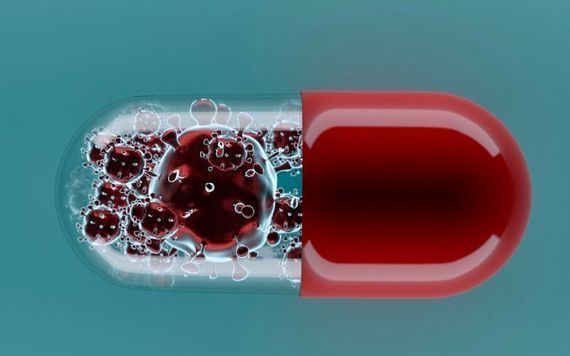An Irish scientist at University College Dublin (UCD) has identified small proteins that allow COVID-19 to infect human cells, paving the way for the development of anti-coronavirus drugs that help fight the virus.
Dr. Denis Shields, a professor of clinical bioinformatics at UCD, was part of an international team of scientists that identified small proteins - called peptides - that enable COVID-19 to attach itself to a host cell. The virus would be unable to attach itself to a host cell if the actions of the peptides can be blocked.
Professor Mark Davocell of the Royal College of Surgeons will now manufacture the peptides identified by Shields in follow-on research funded by Science Foundation Ireland (SFI).
Meanwhile, Dr. Virginie Gautier, an associate virology professor at UCD, will test the peptides against live COVID-19 at the Centre for Experimental Host Pathogen Research. Gautier's research is also funded by the same SFI project.
Researchers will focus on developing new smaller peptide drugs which are cheaper to make than traditional drugs, while the drug will be inhaled rather than injected, Shields told the Irish Times.
Shields said that anti-COVID-19 drugs could be used in one of two ways. They could either stop the virus from binding to the outside of host cells, or they could stop the virus from moving inside the host cell once it has successfully attached itself to the outside of the cell.
Scientists are researching how COVID-19 infects host cells and are attempting to identify the ways that the virus sneaks inside a cell.
"COVID-19 gets into the cells with the help of proteins on their surface, which it attaches to," Shields told the Irish Times. "One of these is called ACE2, and we found that the ACE2 binds to other proteins via ‘motifs’ [small proteins] that we identified."
However, the development of a new COVID-19 drug will still take a significant amount of time and the drug will not be developed on time to help with the current coronavirus pandemic.
"New drugs arising from our research will be too late for this pandemic, but may be useful in a future one," Shields said.
Nevertheless, anti-COVID drugs could play an important part in the fight against the virus. Shields said that vaccines alone may not be enough to fight the coronavirus because scientists still don't know how long the vaccines will work for.
"Vaccines against COVID-19 can offer protection against the disease, but we don’t yet know how long they will work for in the long-term and if too few people are vaccinated it will reduce the overall protection. So, we still need to have drugs that can stop the COVID-19 virus," he told the Irish Times.




Comments